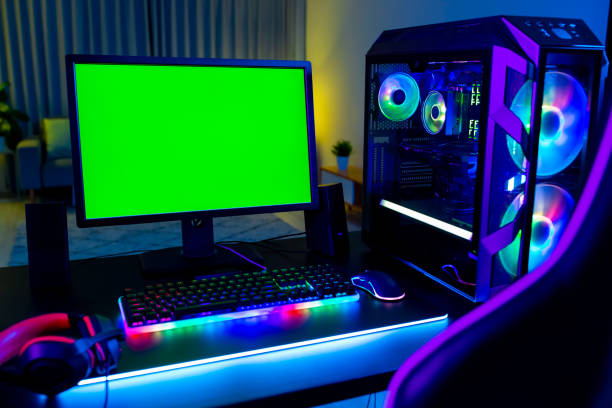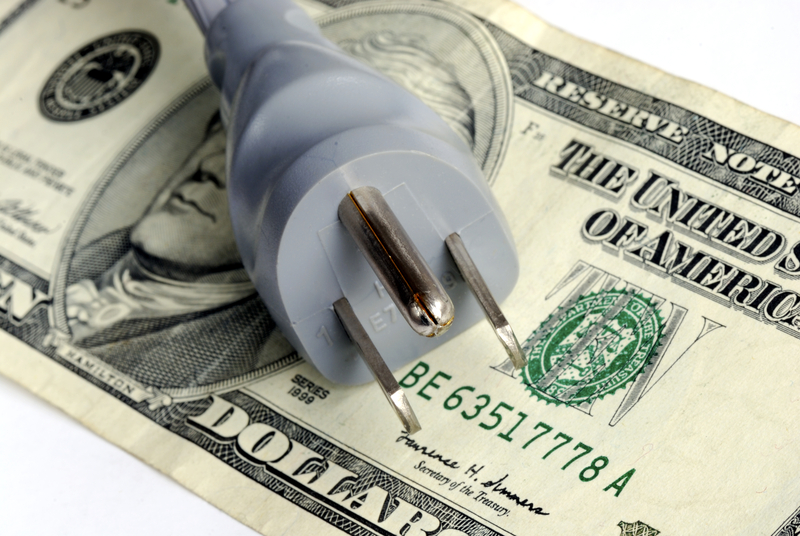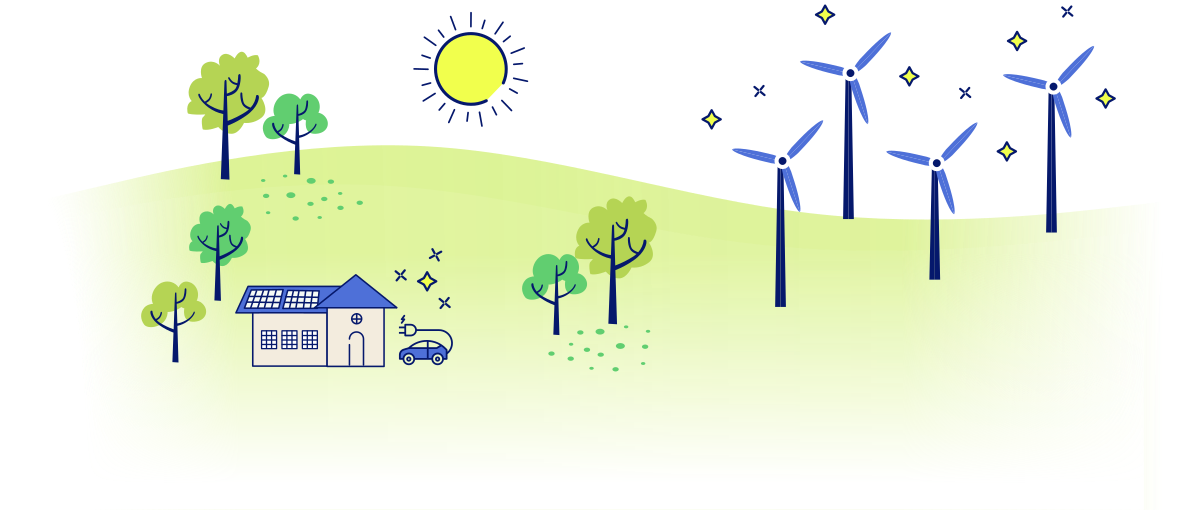This article is your guide to understanding how many watts a laptop uses. The average laptop power consumption comes in between 50 and 100 watts per hour, which is much less than a desktop computer. But other factors play into laptop consumption, like what kind it is, what you use it for, and more!
So, if you want to learn more about laptop power consumption, keep reading.
This article will discuss laptop wattage, how much power a laptop uses, and everything you need to know about laptop power consumption. We hope you find this post helpful and if you are looking for different ways to become more energy efficient be sure to check out our energy savings calculator!
The Energy Professor Electricity Rate Check Tool
How Many Watts Does a Laptop Use?

A laptop uses on average, 50 to 100 watts of electricity. The wattage of a laptop can vary depending on the specific model and manufacturer, but the most common laptop wattage is 65W. To find the exact wattage of your laptop, you can refer to the information provided on the charger.
Here’s a list of popular laptops and their corresponding wattage to help you get an idea of what to expect:
What are the most common watts for laptops?
- MacBook Air – 30W
- MacBook Pro 13″ – 61W
- MacBook Pro 15″ – 67W
- Samsung Galaxy Chromebook 2 – 45W
- Samsung Galaxy Chromebook 4+ – 45W
- Dell Inspiron 14″ – 65W
- Lenovo Chromebook 3 – 45W
- Lenovo Yoga – 65W
The watts for a laptop will also be impacted by various factors such as software, charging, graphics card, and screen brightness. Additionally, laptops that are designed to be energy-efficient or have power-saving features can consume even less power. Therefore, the actual amount of electricity a laptop uses can be difficult to pinpoint, but overall, they are relatively energy-efficient devices compared to other electronics such as desktop computers or televisions.
Do laptops use a lot of Electricity?
Laptops have the potential to use a significant amount of electricity, particularly if they have high-quality graphics that require more power to run. For instance, the MacBook Pro 13′ consumes 61 watts per hour. If you use this laptop for 10 hours a day, it would cost you around $3.3 per month. By comparison, a microwave typically uses 600-800 watts, which costs approximately $0.11 per hour to run.
Related Post: What Uses the Most Electricity in a Home?
How Many Watts Does a Gaming Laptop Use?

A gaming laptop is going to use more watts than your regular laptop you may use for school or work. Gaming laptops usually are top of the line for graphics, battery life, and CPU. They are typically well optimized for efficiency however gaming laptops watts are typically 120-140W for a mid-level PC and 200+W for a higher-end model. This is about 140W more than your average laptop watts.
- Low-end gaming computer watts – 70 – 120 watts
- Mid-level gaming computer wattage – 120 – 140 watts
- High-end gaming computer watts – 150 – 200 + watts
How much power does a gaming laptop use on average?
The amount of power a gaming laptop uses can vary depending on the specific hardware components and usage patterns. On average, a gaming laptop may use between 70 to 120 watts of power while running demanding games or applications. However, high-end gaming laptops with powerful graphics cards, processors, and other components may use even more power. It’s important to note that gaming laptops typically consume more power than regular laptops due to the high-performance components they require
Related Post: How Much Energy Do Gaming Computers Use?
How to Consume Less Power on Your Laptop

There are many different ways to lower your laptop watt usage. If you’re looking to save some money, there are simple things like changing your settings to lower the amount of watts used by your laptop. With the rising costs of energy, many people are looking for ways to save and how to cut back on their laptop wattage usage.
- Energy Saving Setting – Check your laptop’s power settings as it will have several options to save energy.
- Lower your laptop’s brightness – lowering the brightness of your screen may help you save some power.
- Unplug your laptop from the outlet when not in use – even if your computer is shut down, if the charging adapter is plugged into the outlet, it is still consuming energy.
- Don’t charge your laptop if the battery is at 100% – overcharging your laptop not only is detrimental to your battery’s health but also a waste of power.
- Detach external devices when not in use – any external devices like printers, scanners, and webcams are using up the power of your computer.
- Purchase an Energy Star-certified PC – Energy Star-certified PCs use 25-40% less electricity than conventional laptop models. The Energy Star symbol guarantees that the product will deliver quality performance and energy savings
Related Post: How Many Watts Does a TV Use?
How Many Watts is a Laptop FAQ

Q: How much power does a laptop use per hour?
A: A laptop will use between 50-100 watts when it is being used. The wattage is dependent upon the model and manufacturer. A laptop that is on 10 hours a day and consumes 61W will cost you $3.3 per month if used daily.
Q: How many watts does a laptop use when charging?
A: On average, a laptop consumes about 50 watts of electricity when it is plugged in. Laptop chargers consume different watts depending on your device.
Q: How much power does a 14-inch laptop use?
A: 14-inch laptops on average use about 60 watts per hour. If a laptop is used 10 hours a day, it will cost you $3.3 per month if used daily.
Do you Need Cheaper Electricity?
If you’ve taken the time to understand the information on your bill and discovered you’re paying more than you’d like for your electricity, have you looked around for a cheaper deal? The Energy Professor has a wealth of information on ways to save on your utilities, including details of top deals that could significantly reduce your monthly or quarterly electricity bills.
We hope you found this article helpful! If you are looking for ways to increase energy efficiency and sustainability in your home be sure to take a look at all of the latest renewable energy options in your area. The Energy Professor helps residential and small business owners find qualified energy suppliers in New York, New Jersey, Pennsylvania, Texas, Ohio, Maryland, Illinois, and Massachusetts.
